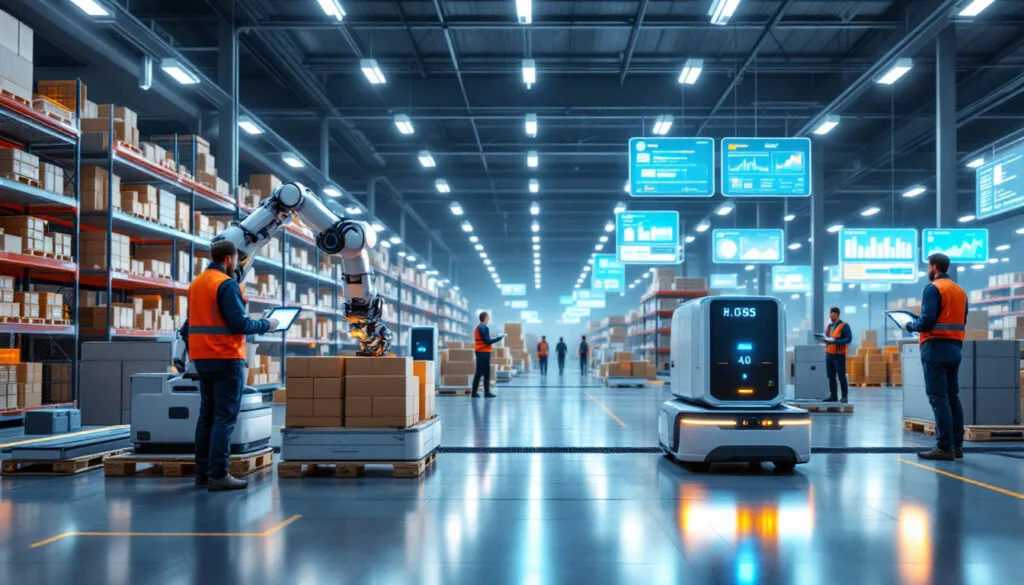The French automotive sector is going through a turbulent period in 2024.
Vehicle production is experiencing an unprecedented drop, reaching levels not seen since the 1960s.
With only 1.34 million vehicles assembled this year, forecasts resemble a deep crisis.
Despite a slight increase in registrations at the beginning of the year, the overall market remains 20% lower than the figures from 2019. French automotive groups, led by Stellantis, are experiencing a significant decline, accounting for more than 23% of the drop in production. The vehicle fleet has reached a record of 45 million cars, reflecting the persistence of structural challenges. The industry is facing a reduction in operational factories, marking a trend of continuous closures since 2016.
Table des matières
ToggleWhy is French automotive production dropping by 10% in 2024?
In 2024, French automotive production experienced a significant decrease of 10%, reaching unprecedented levels since the 1960s. This decline is attributed to several interdependent factors that have impacted the entire sector. Firstly, the Covid-19 pandemic has left deep scars, slowing economic recovery and consumer demand. Moreover, challenges related to digital transformation and the adoption of new technologies have hampered factory productivity.
Another key element is the increased competition from foreign manufacturers, particularly those heavily investing in electric and autonomous vehicles. French manufacturers, such as Stellantis, have faced a 23% decline in their production, primarily due to logistical issues and decreasing market shares. This situation has led to a reduction in investments in production infrastructure, further exacerbating the overall decline.
Furthermore, geopolitical tensions and fluctuations in raw material prices have also played a crucial role. Production costs have risen, making it more difficult to maintain profit margins. As a result, many factories have had to reduce their production capacities or temporarily shut down, contributing to the overall 10% decline recorded in 2024.
Who are the main players affected by this decline?
The decline in automotive production in France in 2024 has affected several major industrial groups. Stellantis, the leader in the French market, saw its production drop by 23%, primarily due to declining sales of its flagship brands like Citroën and Opel. This decrease has led to a significant reduction in jobs and investments within the group.
Other major players such as Renault have also been affected, albeit to a lesser extent. Renault has managed to maintain some stability through a strategy focused on electric and hybrid vehicles, as detailed in this article. However, competitive pressure and technological challenges continue to weigh on its performance.
Volkswagen and Nissan are also among the affected manufacturers, with significant reductions in their production capacities in France. For instance, the merger project between Honda and Nissan, which has raised concerns in Japan, could have repercussions on international collaborations and local production strategies (source).
At the same time, suppliers and subcontractors in the French automotive industry have faced an unprecedented social crisis, with more factory closures than openings in 2024. This has not only impacted the direct production of vehicles but also the entire supply chain, exacerbating the 10% decrease observed this year.
What are the underlying causes of this decline?
The decrease in automotive production in France in 2024 is the result of a combination of economic, technological, and social factors. One of the main causes is the transition to electrification of vehicles, which requires massive investments in research and development. This transition has caused structural adjustments within factories, temporarily slowing the production of traditional vehicles.
Additionally, the global semiconductor shortage has exacerbated production issues. Global supply chains, already weakened by the pandemic, have struggled to adjust to the increasing demand for electronic components necessary for modern vehicles. This shortage has forced many manufacturers to reduce or temporarily halt their production, thereby contributing to the overall decline.
Challenges related to digitalization and the integration of cyber-physical systems into industrial processes have also played an important role. Digital transformation, while necessary to modernize the industry, has often been slowed by a lack of specialized skills and insufficient investment in advanced technologies. This has limited the ability of French factories to quickly adopt more efficient and flexible production methods.
Moreover, geopolitical tensions and protectionist trade policies have affected the competitiveness of French manufacturers in the global market. Tariff barriers and export restrictions have limited access to international markets, thus reducing the production volumes necessary to maintain profitability.
How does the French automotive market compare to other European markets?
Compared to other European markets, France experienced a more pronounced decline in production in 2024. While countries like Germany and Italy also faced slowdowns, the 10% drop in French production is particularly concerning. This situation is partly due to France’s high reliance on a few large industrial groups, which has amplified the impact of internal issues.
For example, Germany, despite facing similar challenges, has managed to maintain relatively stable production due to a diversification of its manufacturers and greater resilience in its supply chains. Additionally, some European countries have successfully adapted to the transition to electric vehicles, allowing them to limit production losses.
The French market has also been affected by a more pronounced decline in new car sales. In 2024, registrations increased by 9.2% in January, reaching 122,290 units, but they fell by 10.4% compared to the previous month. This volatility contrasts with markets like Spain and the United Kingdom, which have recorded a more stable recovery in sales after the lows triggered by the pandemic.
Government policies and support initiatives have also varied from country to country. In France, support measures for the automotive industry have not been as effective or targeted as in some other European countries, contributing to a greater vulnerability to economic and technological shocks.
What are the future prospects for the automotive industry in France?
Despite the 10% decrease in automotive production in 2024, the prospects for the automotive industry in France remain mixed but encouraging. The transition towards green technologies and innovation in cyber-physical systems offers opportunities to redefine the French industrial landscape. Investments in cloud computing and digital transformation services play a crucial role in modernizing manufacturing processes.
Government initiatives aimed at supporting research and development in the electric and autonomous vehicle sector are also promising. Grant programs and tax credits can stimulate investments from manufacturers and accelerate the adoption of advanced technologies, thereby strengthening the competitiveness of French companies in the global market.
Furthermore, the focus on industry 4.0, where the industrial Internet of Things (IIoT) enables better optimization of production, could radically transform the automotive sector. Customized digital transformation services can help factories become more flexible, efficient, and resilient to market fluctuations.
However, future success will depend on the ability of companies to overcome current challenges and quickly adapt to market changes. The integration of innovative solutions and collaboration with technology partners will be essential to revitalize French automotive production.
What are possible solutions to relaunch automotive production?
To reverse the trend and relaunch automotive production in France, several solutions can be considered. One of the most promising approaches is based on collaboration between the public and private sectors. Strategic partnerships with technology companies can accelerate the integration of digital innovations and cyber-physical systems into production processes.
Automation also plays a key role in increasing the efficiency and flexibility of factories. By adopting advanced automation technologies, manufacturers can reduce production costs, minimize human errors, and increase production capacity without compromising quality. To learn more about automation, check this article.
Investing in the training and development of employee skills is another crucial solution. By improving the technical and digital skills of workers, companies can better adapt to new technologies and enhance productivity. Training programs focused on IIoT and digital transformation can facilitate this transition, as illustrated by this example.
In addition, government incentive policies can encourage investments in modern production infrastructure. Targeted subsidies for the adoption of green technologies and tax credits for research and development can stimulate innovation and competitiveness among French companies.
Finally, diversifying export markets is essential to reduce reliance on a few large markets. By exploring new emerging markets and strengthening international partnerships, French manufacturers can increase their sales and stabilize their production.
Case study: Renault and its resilience strategy
Renault has managed to maintain some stability despite market challenges. By focusing on electric and hybrid vehicles, Renault has been able to respond to the growing demand for more sustainable transport solutions. This strategy, combined with digital transformation initiatives, has allowed Renault to remain competitive and contribute positively to the recovery of automotive production in France.
Impact of digital transformation
Digital transformation is at the heart of modernizing the automotive industry. By integrating cyber-physical systems and adopting cloud computing technologies, manufacturers can optimize their production processes, reduce costs, and improve product quality. This technological revolution is essential for reviving production and ensuring the sustainability of the French automotive sector.





